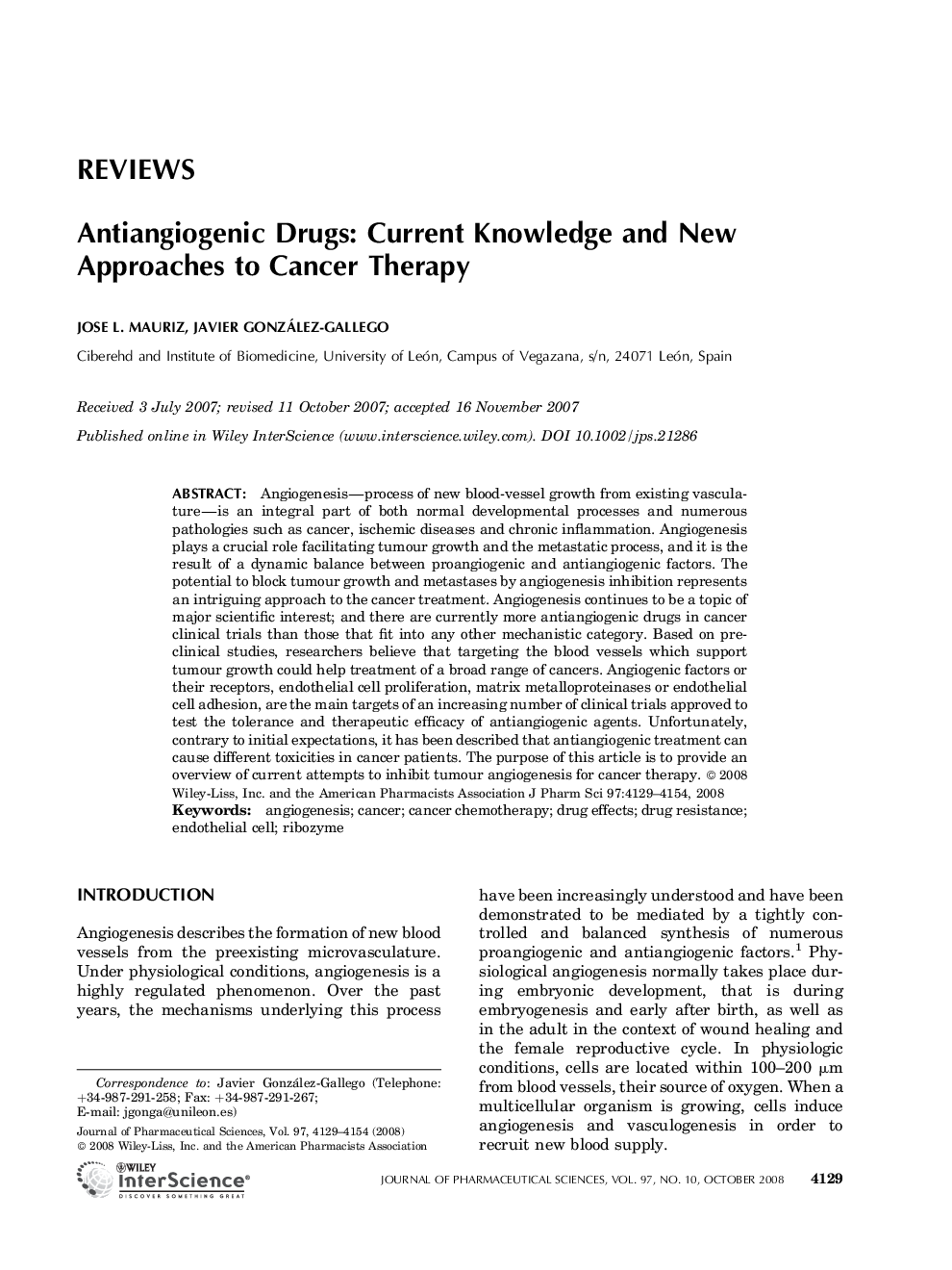| Article ID | Journal | Published Year | Pages | File Type |
|---|---|---|---|---|
| 2485317 | Journal of Pharmaceutical Sciences | 2008 | 26 Pages |
Abstract
Angiogenesis-process of new blood-vessel growth from existing vasculature-is an integral part of both normal developmental processes and numerous pathologies such as cancer, ischemic diseases and chronic inflammation. Angiogenesis plays a crucial role facilitating tumour growth and the metastatic process, and it is the result of a dynamic balance between proangiogenic and antiangiogenic factors. The potential to block tumour growth and metastases by angiogenesis inhibition represents an intriguing approach to the cancer treatment. Angiogenesis continues to be a topic of major scientific interest; and there are currently more antiangiogenic drugs in cancer clinical trials than those that fit into any other mechanistic category. Based on preclinical studies, researchers believe that targeting the blood vessels which support tumour growth could help treatment of a broad range of cancers. Angiogenic factors or their receptors, endothelial cell proliferation, matrix metalloproteinases or endothelial cell adhesion, are the main targets of an increasing number of clinical trials approved to test the tolerance and therapeutic efficacy of antiangiogenic agents. Unfortunately, contrary to initial expectations, it has been described that antiangiogenic treatment can cause different toxicities in cancer patients. The purpose of this article is to provide an overview of current attempts to inhibit tumour angiogenesis for cancer therapy.
Related Topics
Health Sciences
Pharmacology, Toxicology and Pharmaceutical Science
Drug Discovery
Authors
Jose L. Mauriz, Javier González-Gallego,
